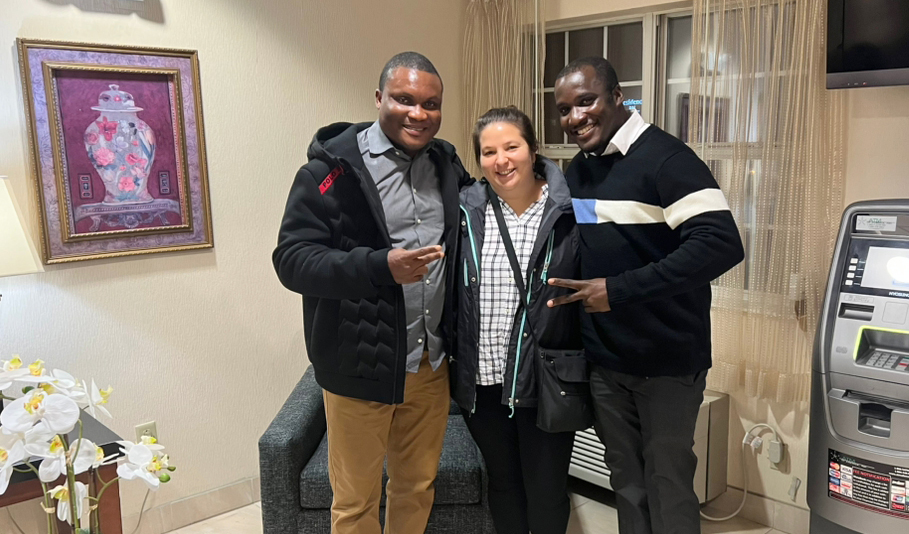
Five Maternal Fetal Medicine fellows—the first such specialists ever to be trained in-country—are now at work in Ghana, thanks in part to a long-term collaboration with UMMS to help bolster Ghana’s maternal health services and workforce.
“This could not have been possible without the instrumental role that Michigan played in our training, and I am personally most grateful,” said Dr. Perez Sepenu, MD, one of four trainees from Korle Bu Teaching Hospital, in Accra, who finished the program this March. A fifth fellow, trained at Komfo Anokye Teaching Hospital, in Kumasi, graduated a few months earlier.
Obstetrics and Gynecology faculty from Michigan Medicine, including Tim Johnson and former Maternal Fetal Medicine fellow D’Angela Pitts (now with Henry Ford Hospital), helped Ghanaian partners in the program’s curriculum creation and implementation in 2017.
Just as happens at Michigan Medicine, the new Maternal Fetal Medicine specialists in Ghana will manage high-risk pregnancies. Maternal mortality rates in Ghana have fallen in recent decades to around 260 deaths per 1,000 live births, according to WHO data, below the regional average for all of sub-Saharan Africa (545), but well above the WHO target of 70 deaths per 1,000 live births by the year 2030.
Top contributors to maternal mortality in Ghana are underlying causes like hemorrhage, hypertension, and ectopic pregnancies—conditions on which the recently graduated fellows have ample training.
Ghana also has an unusually high prevalence of sickle cell disease, which is associated with pre-term labor and low birth weight. The rise of non-communicable diseases on the African continent means more pregnant women are presenting with diabetes and other conditions. And rapidly increasing life expectancy means women are becoming pregnant later in life.
“A big priority in these teaching hospitals in Ghana was to develop Maternal Fetal Medicine fellowships because there are so many high-risk pregnancies,” said Emma Lawrence, MD, a UMMS Clinical Assistant Professor of Obstetrics and Gynecology with extensive collaborations in Ghana.
“When expecting mothers enter their pregnancy with an identified high-risk medical condition, this team will do the prenatal care to make sure these patients have the best coordination and planning. And if deliveries get complicated, they are the team that is called in,” Lawrence said.
Earlier this year, Lawrence, along with Elizabeth Langen, Michigan's MFM Fellowship Program Director, facilitated month-long observerships at Michigan Medicine for three of fellows from Korle Bu, including Dr. Sepenu. With the visit only weeks ahead of their board licensing exams, the fellows were able to get practical training on some conditions and situations on which they could expect to be tested, but wouldn’t necessarily ever see in Ghana.
Just as important, they were able to observe how the Maternal Fetal Medicine division collaborates across the broader Ob-Gyn department and institution to coordinate care.
“This was important because, as the first trained specialists in Ghana, they now need to build an MFM program basically from the ground up,” Lawrence said.
